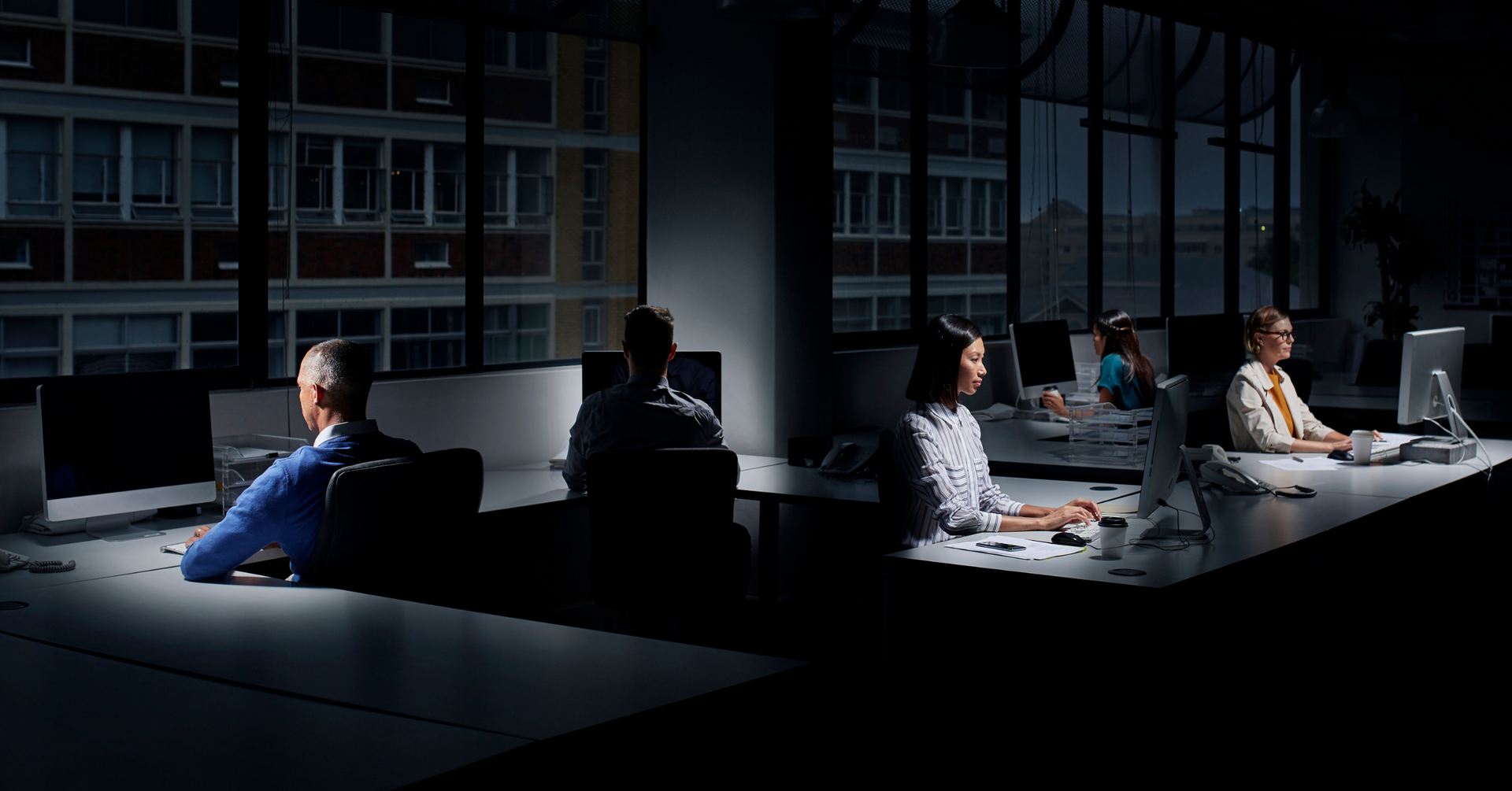Stress is an inevitable part of work.
Our eyebrows furrow when we get tight deadlines.
Our chest constricts when a client meeting doesn’t go the way we expect it to.
Our grip tightens on the mouse when we realise we’ll have a higher workload than we are used to.
Mental stress costs Australian businesses almost $15 billion per year – both in absenteeism and lost productivity during presenteeism(1).
These are examples of the external stressors we face every day when we go to work – the ones that slowly build over time. In moderation, a bit of pressure at work is fine. In fact, our bodies are designed with the natural ability to respond to stress.
Everyone has coping mechanisms in place to deal with stress. But we all have a different breaking point – a line where the pressure becomes too much for us to handle. So, what determines how much stress we can cope with before we cross that point?
This is where psychological resilience comes in.
Psychological Resilience in the Workplace
Think of psychological resilience as a balloon, and stress as the air that fills it. The more stressors we receive, the more pressure we feel. Fortunately, most of us have the capacity to withstand the pressure – we expand; we stretch our mental resources to deal with the stressors that fill our lives.
This balloon-like capacity to cope with stress and bounce back from setbacks is our psychological resilience. But ask anyone who has had a balloon burst on their face while blowing it and they will tell you: some balloons can handle more pressure than others.
So, what exactly determines our individual resilience against adversity?
Research has identified a number of protective factors that determine how resilient we are:
- Coping Skills
Our ability to “look on the bright side” of things, or regulate our own emotions.
- Sense of Control
The degree to which we feel in control of our lives and the things we can achieve (psychologists call this self-efficacy).
- Social Support
The degree to which we have support from our friends and family.
How well we’re able to handle stress depends on the extent to which we’re able to tap into and use these factors. But what happens when our resilience is low?
In 2014, one in five Australians (21%) reported that they had taken time off work in the past 12 months because they felt stressed, anxious, depressed or mentally unhealthy(2).
For most of us, the stress we experience at work starts small and slowly builds over time (with occasional spikes that momentarily stretch our capacity). But for some, psychological resilience can be a matter of life or death.
In 2015, firefighting was listed as one of the most stressful occupations, with suicide deaths reported at a staggering rate in Australia. Due to the critical nature of their work, the stresses faced by our triple-zero heroes are significantly amplified.
The consequences of not being able to cope with high pressure or high-stress work environments are mentally harmful, and potentially fatal. Every organisation has a duty of care to make sure their employees can cope with the pressure put on by their work environment. How can organisations overcome this and reduce this risk?
The solution is twofold:
- Resilience Training
Studies have proposed that training people with coping skills can enhance their resistance to workplace stress and increase the frequency of help-seeking behaviour.
- Select the Right Balloons
You know the old saying: prevention is better than cure. With the help of psychometric testing, organisations (especially those involving high-stress environments) can reduce the risk of negative mental health consequences associated with workplace stress by recruiting people who possess levels of psychological resilience that match the role’s environment and tasks.
‘All of Me’: Helping Businesses Identify and Address Early Indicators of Stress, Anxiety, and Depression
Psychometrics have become increasingly sophisticated over recent years, with new tools and technologies enabling us to look beyond surface level characteristics and ‘types’, to assess for deeper indicators of psychological health (e.g. resilience, emotional control, social sensitivity, and the capacity to proactively bounce back from setbacks and obstacles).
We’re also seeing an increasing trend to utilise psychometrics to inform and support resilience and wellbeing development programs for existing employees within organisations. With continued use over time, organisations can utilise psychometrics to identify and support those who may be at risk, while building an increasingly resilient workforce.
Chandler Macleod Group (CMG) has collaborated with Tap into Safety to make available online mental health self-assessment through the All of Me mental health application.
CMG has been shortlisted as a 2018 finalist in the Recruitment, Consulting and Staffing Association’s (RSCA) Awards in the area of safety and risk management for their proactive implementation of All of Me and collaboration with Tap into Safety and Edith Cowan University to provide results and analysis of the All of Me mental health application.
We believe All of Me to be an amazing e-mental health tool, which as part of a comprehensive mental health program, can start driving much needed industry improvement in this area.
Gary Whittaker, General Manager – Staffing Services WA/SA/NT, Chandler Macleod Group
The team has been recognised for their fantastic work with the ‘All of Me’ program, which focuses on a proactive approach to mental health management in the workforce.
To learn more about how the All of Me mental health application can improve your workplace mental health culture, contact Chandler Macleod today.
View our other articles on Psychological Wellbeing:
Psychological Wellbeing: Closing the Gap
Psychological Wellbeing: Suicidal Thoughts and Self-Harm
Written by Jamie Greer – General Manager – Assessment, Chandler Macleod People Insights & Gary Whittaker – General Manager – Staffing Services WA, SA & NT
References
1.The Cost of Workplace Stress in Australia, Medibank Private Limited 2008
2. State of Workplace Mental Health in Australia, beyondblue 2014










